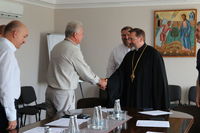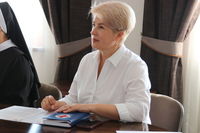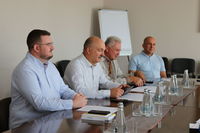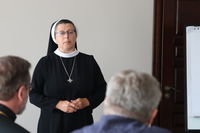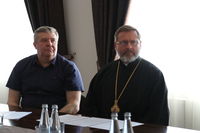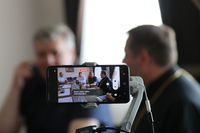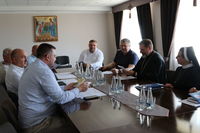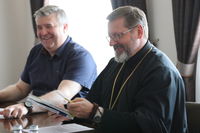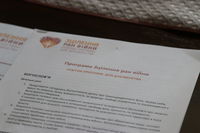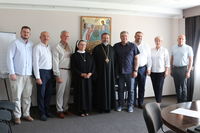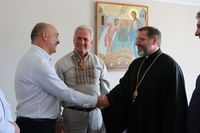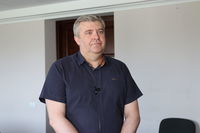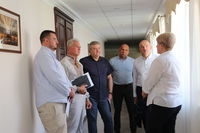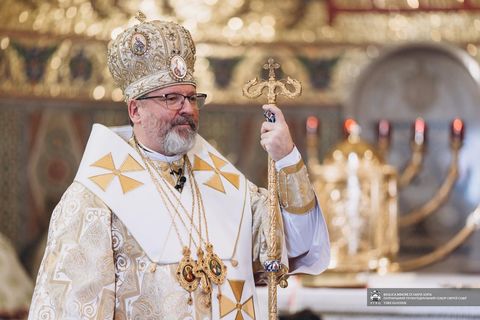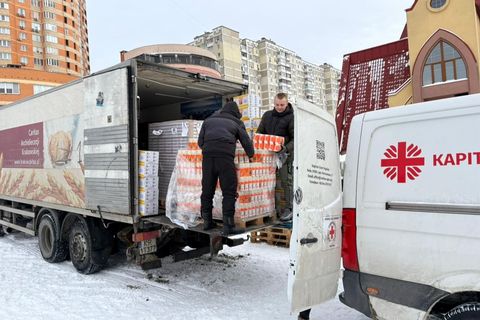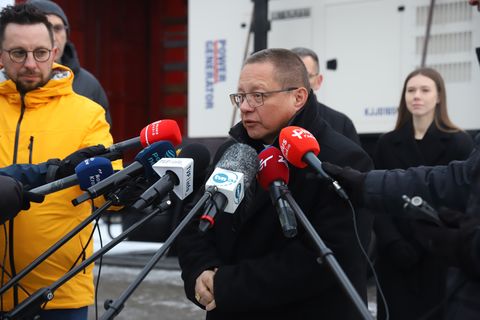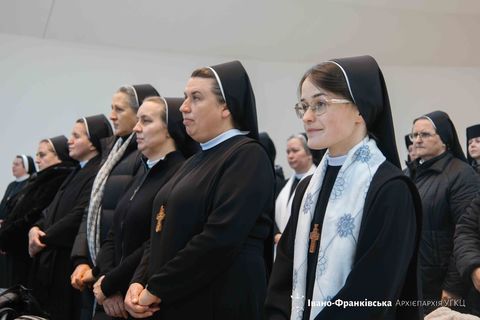“We are forming a nucleus that can lead others”: Head of UGCC and delegation of the Ukrainian Church of Christians of Evangelical Faith discuss healing wounds of war
On August 29, the Father and Head of the UGCC, His Beatitude Sviatoslav, and the head of the UGCC Commission for Health Care Pastoral Care, Sevastiana Karvatska, met with representatives of the Ukrainian Church of Christians of Evangelical Faith, led by Senior Bishop Anatoliy Kozachok. At the inter-church ecumenical level, the parties discussed the problem of traumas and wounds of war and agreed to cooperate on the issue of healing people.
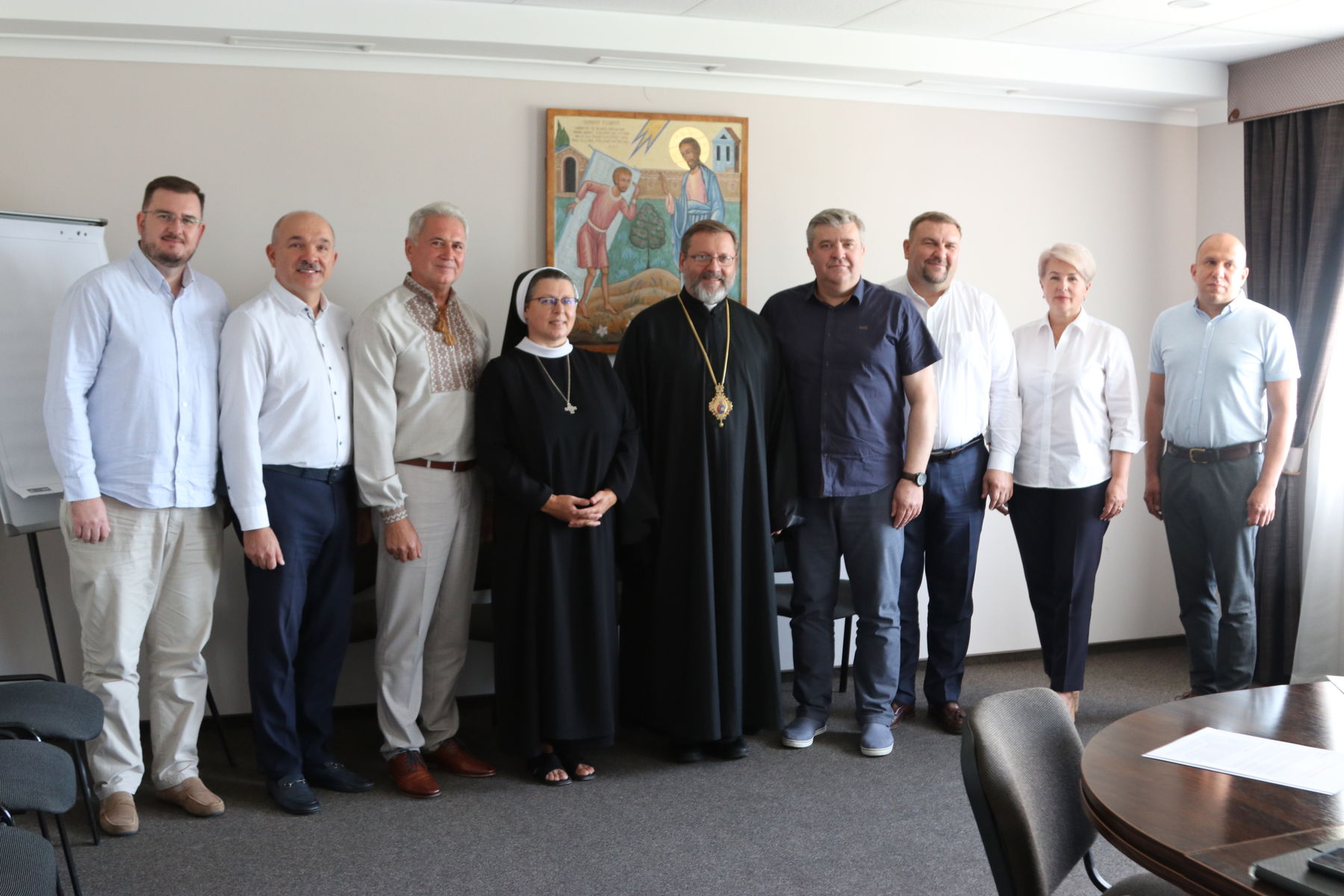
Sister Sevastiana Karvatska introduced the UGCC pastoral program “Healing the Wounds of War.”
According to the Head of the Commission, the program was born with the blessing of the Father and Head of the UGCC, His Beatitude Sviatoslav, who constantly encourages the Church to walk with the people who suffer and struggle.
First of all, she said, this program is aimed at the clergy of the UGCC: priests, monks, and nuns. Specifically, monasticism is important, as wounded people often turn to monastery churches.
“The Basilian Fathers have found a resource to implement the program for all Basilians. The program will also reach the clergy of the Kyiv Archeparchy,” announced Sister Sebastiana.
As the nun emphasized, the program aims to provide the clergy with the necessary knowledge to face new military challenges.
His Beatitude Sviatoslav first of all emphasized the spiritual component of this church program, which is dominant.
“The program is not only an intellectual training centered on the spiritual path that a priest or monk or nun must go through in those days, but it should also give them the opportunity to go through the path of personal healing,” said the Primate, warning against the danger of psychologizing pastoral care.
“Our task,” says the patriarch, “is to convey the power of God’s Word, the grace of the Holy Spirit, the idea that it is not so much human wisdom or professionalism that heals but God.”
“From the spiritual,” the Head of the UGCC continued, “comes the pastoral or pastoral care.” According to him, the models of pastoral care that exist today in the Catholic Church should be reconsidered. The most acceptable of all is the model of accompaniment. Yet, to what extent can a priest indeed be present?
Speaking about the second component, psychology, the Head of the UGCC drew attention to the danger of psychologists denying the spiritual elements of the human being.
Senior Bishop Anatoliy Kozachok of the Ukrainian Evangelical Christian Church of Evangelical Faith spoke about the experience of their church in dealing with the trauma of war. First, they work at the ground level, holding seminars for pastors and deacons.
Senior Bishop Anatoliy Kozachok shared his opinion that Ukrainians should unite and help themselves because foreign experience is entirely different and cannot fully meet the needs of our people.
Summing up, His Beatitude Sviatoslav noted that the UGCC is interested in how this topic is approached in different denominations.
“Experience sharing is very interesting. It is important for us to know that we are not the only ones trying to respond to the need for trauma healing. This exchange will be very vital. Our commission is a platform for reflection, where experience is constantly accumulated. The more experience we have, the better we will be able to serve people,” said the Father and Head of the UGCC.
The UGCC Department for Information